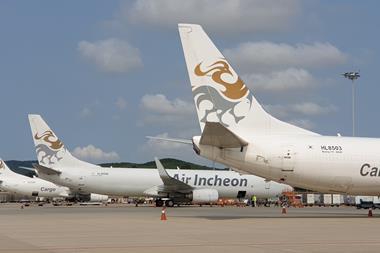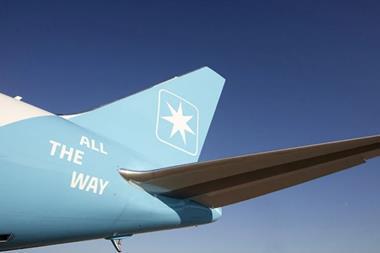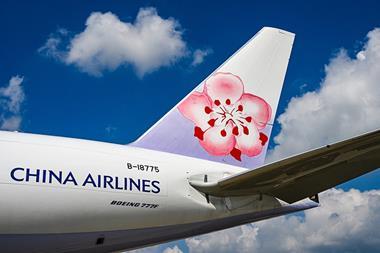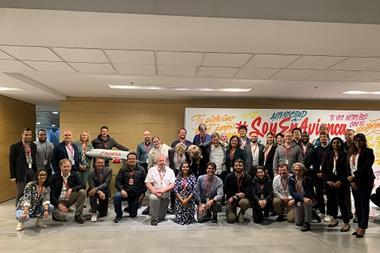In this Q&A, Guillaume Halleux, chief officer cargo, Qatar Airways Cargo, provides us with an update on the airline's WeQare initiative, which was launched in July last year with Chapter 1 - an initiative that saw the carrier provided 1m kg of free cargo capacity for charities to transport medical supplies and humanitarian aid. In Chapter 2, launched in February, the airline committed to transport animals for free as part of conservation efforts.
Wild animals captured and taken from their natural habitats suffer lifelong and given our role as a leading air cargo carrier with an extensive network and our expertise in live animal transport, the thought of transporting wildlife back to their natural habitat came to mind. So, Chapter 2 was launched on February 1 and is called Rewild the Planet.
As an inaugural signatory to the Buckingham Palace Declaration in March 2016 and a founding member of the United for Wildlife Transport Taskforce, Qatar Airways has a zero-tolerance policy towards the illegal trade of endangered wildlife. Our initiative to bringing wildlife back to their natural habitat is consistent with the airline’s commitment to fight wildlife trafficking and illegal trade of wild animals.
The repatriation of animals is not a huge market, but it is definitely growing. Our number of shipments for live animals has seen 78% growth and we have already operated flights for wildlife. A good example I can refer to is the transport of Eric the rhino in 2018.
In collaboration with animal transport specialist Intradco Global, we flew Eric, a 1,157 kilograms black rhino from San Diego Zoo in California to his new home in Tanzania, for the Singita Grumeti Fund, a non-profit organisation carrying out wildlife conservation and community development work in the western corridor of the Serengeti ecosystem in Tanzania.
Another example is Peggy, the Olive Ridley turtle who flew on our flight from Brussels to Maldives via Doha.
Peggy was rescued by a team of Marine Savers when she got trapped in fish nets. She had to get one flipper removed, in order to save her life. After this important surgery, Peggy got the chance to recover in the aquarium of Pairi Daiza, elected Europe’s best zoo in 2019. With the excellent care of her keepers in the Belgian facilities, Peggy regained confidence and the ability to swim. After three years of rehabilitation, Peggy was ready to be released back into the ocean.
Chapter 2 was recently launched on February 1 and we are already receiving positive feedback from NGOs and associations. These organisations are doing a great job and we have started receiving inquiries for wildlife transportation. Some formalities for this specific transport take time but we are on the right track and details of the first shipments within the scope of Chapter 2 will be announced in due time.
When Chapter 1 was announced and discussed with our customers, many of the forwarders like JAS, Agility, Bollore, Kuehne and Nagel DGF, Hellmann, Woojung, Geodis, DSV, UPS, Expo Freight and WWG Consolidators to name a few were delighted to be part of this initiative.
Many of them embraced the cause and some of them even went to the extent of providing their own services, like pick up or customs clearance, free of charge. However, we have also been disappointed to see that a number of forwarders did not even bother seizing the opportunity. We have then offered their quota to charities ourselves. In the end, the 1m kilos were fully utilised.
WeQare is a meaningful project. Supported by our employees. It is a dynamic programme, few chapters are under construction while few chapters have already been launched, eg: Chapter 1 – 1m kgs that ended in December 2020, Chapter 2 – Rewild the Planet, which was recently announced.
WeQare will carry on indefinitely, so stay tuned for more chapters to be announced during this year. We are indeed excited about the upcoming chapters with sustainability at the core of each chapter.










